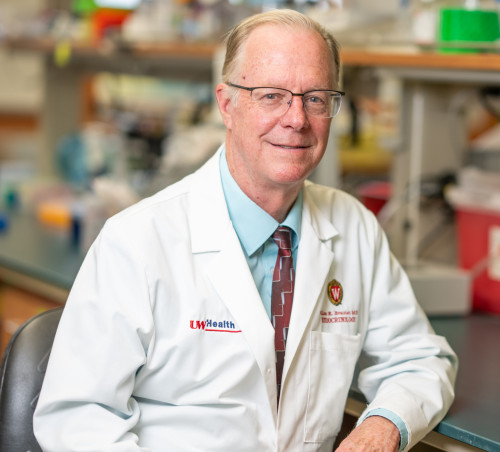UW–Madison leading new research collaboration aimed at treating lung scarring diseases
University of Wisconsin–Madison scientists are poised to gain a better understanding of how to treat a progressive scarring disease of the lungs that kills an estimated 40,000 people every year in the United States.
Despite its status as a leading cause of death in the U.S., researchers still don’t understand exactly how and why the disease — known as idiopathic pulmonary fibrosis, or IPF — takes hold and progresses, and doctors have few effective therapies at their disposal.
Now, an interdisciplinary group of researchers from UW–Madison’s Institute for Clinical and Translational Research, School of Medicine and Public Health, College of Engineering and School of Pharmacy will investigate the biological processes that promote lung scarring. With the aid of artificial intelligence and advanced 3D modeling, they will also develop and refine new imaging techniques and drug delivery systems that could aid in halting its progression.
The new work builds on expertise in IPF gained over years at UW–Madison and is possible thanks to nearly $11 million in funding from the U.S. Department of Defense.
“New, creative and transdisciplinary research teams are needed to push the boundaries of existing disciplines to address this complex disease,” says Allan Brasier, executive director of the Institute for Clinical and Translational Research. Brasier, who is leading the study, is a globally recognized researcher of inflammation and its role in heart and lung diseases.
The new funding will allow Brasier and his collaborators to expand their research into IPF and its treatment. The group includes Seungpyo Hong, director of the Wisconsin Center for NanoBioSystems in the School of Pharmacy; Nathan Sandbo, director of the UW Health Interstitial Lung Disease Program; Paul Campagnola, professor and chair of biomedical engineering; and Lynn Schnapp, professor and chair of the Department of Medicine.
“An interdisciplinary approach where cell biologists, engineers, lung doctors and medicinal chemists are all able to work closely together is key to tackling a difficult disease like IPF,” says Brasier. He is hopeful the group’s work will be another example of how UW–Madison’s massive research enterprise in disparate fields can be mobilized to improve people’s lives.
“This program provides a template for pushing the envelope to address otherwise intractable research problems through harnessing the clinical and research strengths here at UW–Madison,” Brasier says.
There is much room for improvement for IPF patients, who often suffer significant breathing impairments that make it difficult to maintain independence. The median life expectancy following diagnosis is 3-5 years, and IPF is a leading reason for lung transplantation.
The research collaboration has been three years in the making, with the Institute for Clinical and Translational Research providing team science support, program management, coordination, pre-awards and compliance support to the group through its Research Alliance program.
“This program is a superb example of bringing UW–Madison’s strengths in transdisciplinary research to address a major unmet health need,” says Cynthia Czajkowski, interim vice chancellor for research. “The research strengths from across campus will advance mechanistic understanding and diagnostics for IPF.”
This research is being funded by U.S. Department of Defense grant HT94252410543.

